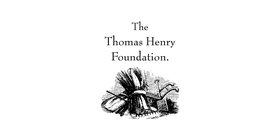
Mark Little
I grew up on a mixed dairy and suckler cow farm in County Fermanagh, where my family continue to farm. I attended Portora Royal School, Eniskillen and then studied veterinary medicine at University College Dublin, graduating in 2002. I worked in three veterinary practices in County Tyrone and Armagh, where my focus was on herd health and routine farm visits. To further my knowledge in herd health, I completed a post-graduate certificate in dairy herd health from University College Dublin in 2012. After working for a year in pharmaceutical industry, I completed a PhD researching the nutritional influences on immunity in the transition dairy cow, with studies conducted at Agri-Food and Biosciences Institute, Hillsborough in conjunction with Queens University Belfast.
I currently live in Moira, County Armagh. Since 2016, I have been working as Technical Manager for Trouw Nutrition Ireland. I support and train a team of field based animal nutritionists and work closely with the marketing team to provide technical input in press releases and adverts. I provide veterinary and nutritional support to our feed mill business partners and also direct to their farmers. I am also responsible for projects with universities on future research and on-farm applications to make a practical difference on-farm. I would like to thank my colleagues at Trouw Nutrition for their encouragement in my project.
My wife, Joleen, is a small animal veterinary surgeon and a wonderful mother to our two kids, Tilly and Daisy. I would like to thank Joleen for her support, without which I would not be able to undertake this fantastic opportunity.
Particular thanks goes to the Thomas Henry Foundation for sponsoring my Nuffield scholarship. I really appreciate the generous sponsorship to enable this amazing opportunity and endeavor to find practical on-farm nutritional solutions to increase the health of cattle on UK farms.
The Thomas Henry Foundation

Study Overview
Antimicrobial resistance is recognized as a major issue for human and veterinary health. There is concern that antimicrobial resistance in animals could potentially transfer to people. Therefore, there is a need to reduce the use of antimicrobials in food producing animals. Methods to achieve this are vaccinations, good management and good nutrition.
The phrase 'good animal nutrition is key to animal health' is frequently used, but possible misunderstood. If the needs of an animal (energy, protein, vitamins and minerals) are met, the diet meets the term ‘good nutrition.’ Therefore, 'feeding for health' is a more appropriate phrase for my project.
The aim of my study is to examine novel solutions to reduce the need to use antimicrobials in food producing animals, particularly cattle. Could new feed technologies and solutions that show promise in in-vitro lab work have practical applications to increase animal health? In addition, I would like to explore current solutions used by the feed industry to identify where these can be adopted by other species, for example, some of the products used in poultry and swine may have practical applications in ruminants.
I would like to unite the veterinary and nutrition industries to work together to find solutions to antimicrobial resistance, as I believe there is not enough collaborative work at present. Working together will produce new thoughts and ideas that will make a difference for famers and food producers. This will result a reduction in usage of antibiotics, increased food animal welfare, safer high quality food and increased consumer confidence in UK animal products.